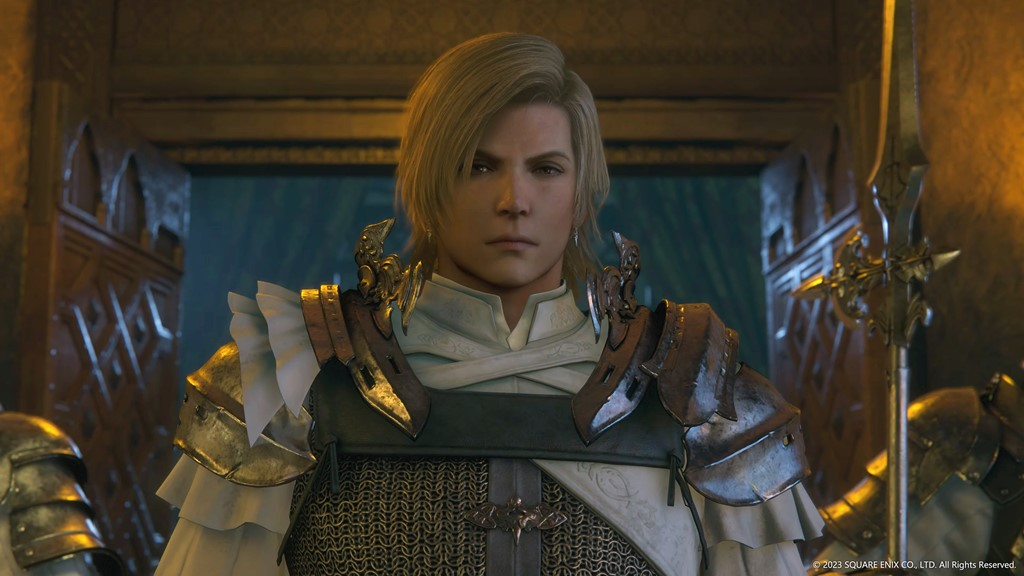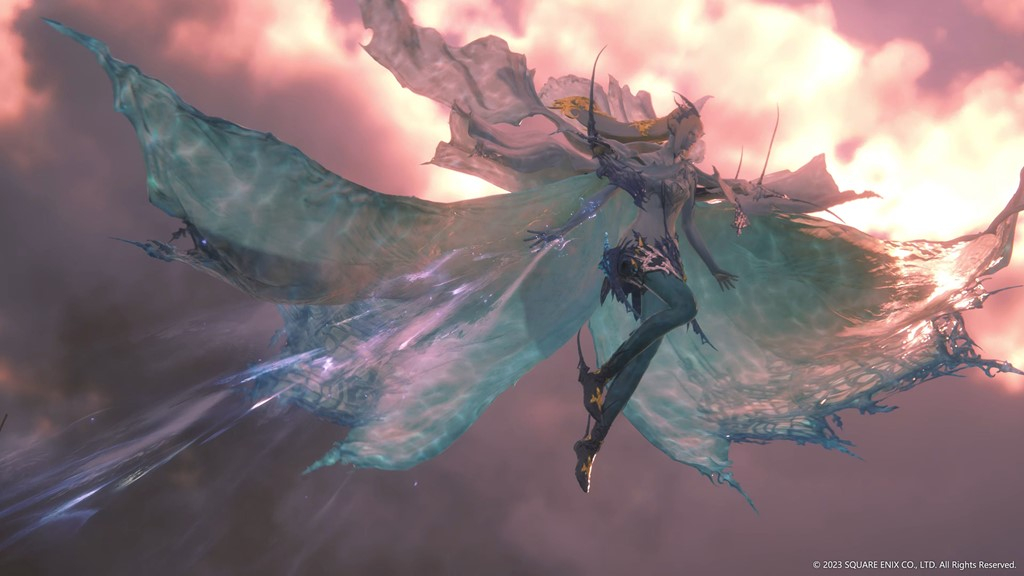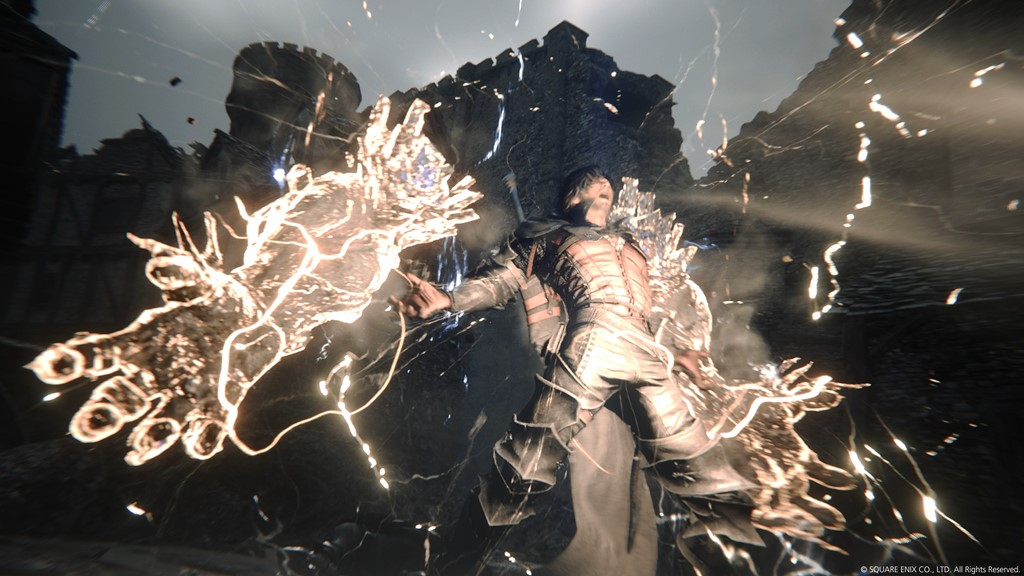Final Fantasy 16’s queer romance has its problems, but marks a step forward for the series
Love is a battlefield

Sign up for breaking news, reviews, opinion, top tech deals, and more.
You are now subscribed
Your newsletter sign-up was successful
When we first hear of “Dion the Bold”, it is in a medieval folk song praising his skill in battle. We are lead to picture a model of stereotypical masculinity, whose “lance levels mountains”.
I feared that Dion might be profoundly boring – a posturing, macho warrior who lives and dies by only the blandest sort of violence. Fortunately, the sensitive, soulful prince we got instead was anything but.
Spoilers ahead for Final Fantasy 16
Dion is the first explicitly queer main character in a mainline Final Fantasy title. Though there have been many characters with queer undertones across the series’ history, Dion marks the first whose queerness is explicitly confirmed.
Dion is in love with his aide-de-camp, Terrence, this much is obvious. Their shared body language and emotive interactions are replete with palpable homoromantic tension. As with many stirring love stories, Dion and Terrence’s relationship is painfully impeded by barriers of class and social convention.
Sick of the belligerent orders of his father, the Emperor of Sanbreque, Dion cradles Terrance’s head. “I wish you were my master”, he says, his voice wavering with a compelling cocktail of love for his aide, resentment of his father and fear for his future. Stewart Clarke, Dion’s English voice actor, offers a stunning performance in the role – made all the more remarkable in the context of Final Fantasy 16’s consistently high quality of voice acting.
The scenes between Dion and Terrance tug at the heart strings with all the efficacy that one would expect from a love story crafted by the writers behind Final Fantasy 14’s rightly celebrated narrative.
Sign up for breaking news, reviews, opinion, top tech deals, and more.
A checkered past

Dion and Terrance mark a step forward for the series in terms of representation. Final Fantasy has often presented us characters with queer undertones, but whose queerness is never explicitly confirmed.
Perhaps, most famously, Final Fantasy 7’s Cloud wears feminine clothing in an early section of the game in order to infiltrate Don Corneo’s mansion. Final Fantasy 7 Remake took great pains to portray this as an act of empowerment, even having Cloud remark that he “nailed it '' while Tifa and Aerith were impressed at his new look. This sort of genderqueer mode of expression has caused many queer fans to see themselves in Cloud, however, even Remake didn’t directly address whether or not Cloud was simply disguising himself, or if he was expressing his gender identity in a more genuine and heartfelt way.
Final Fantasy 16 is far more explicit in its representation of a homoromantic relationship
Final Fantasy 13 and Final Fantasy 14 both included relationships between female characters which hinted at lesbian relationships. Vanille and Fang’s interactions in Final Fantasy 13 could easily be read as romantic. The same can be said for Ryne and Gaia in Final Fantasy 14, whose relationship was the subject of an entire raid series during the Shadowbringers expansion.
Though grateful for the morsels of quasi-representation offered by these characters, I am frustrated by the practice of “queerbaiting”. This is a marketing technique designed to hint at, but not outright depict LGBT characters or relationships in order to attract a queer audience. Though it’s difficult to be sure as to whether or not a piece of media is deliberately engaging in this form of behavior, this uncertainty does little to ease my disappointment at Final Fantasy 14’s ambiguous approach towards Ryne and Gaia’s relationship.
That said, Final Fantasy 16 is far more explicit in its representation of a homoromantic relationship, to the extent that it’s far harder to accuse the game of queerbaiting compared to its predecessors.
Bury your gays
That said, Dion and Terrance’s relationship does fall into a range of pitfalls which are also upsettingly common in Western media.
As a prelude to Final Fantasy 16’s closing act, Dion attempts to unseat his father from the throne of Sanbreque after deducing that his half-brother, the newly-crowned Emperor, had been corrupted by the title’s main villain. Even his coup has a sense of nobility about it, with his troops keen on “sparing the civilians”.
Unfortunately, at the climax of these events, Dion attempts to slay his half-brother, only for Dion’s father to intercede, resulting in an accidental, yet intensely tragic bout of patricide. This causes Dion to have a breakdown, causing him to lose control, transform into the dragon Bahamut and wreak havoc on the city.
Though Clive is able to stop him, Dion spends the remainder of the game seeking atonement for his actions. Other characters remark on how Dion is too hard on himself; that the power of Bahamut is difficult to contain even at the best of time. Dion has none of it and eventually gives his life during the final battle for the fate of Valesthia.

Despite taking two steps forward in terms of queer representation, Square Enix has also taken one step back by having one of its first explicitly queer characters meet such a violent end. This fate is all too common for queer characters in media and remains a prevalant trend even in 2023 and is indicative of prevailing prejudices against LGBTQ+ people.
Video games are no exception to this dispiriting pattern. Grand Theft Auto 4’s DLC The Ballad of Gay Tony has the eponymous Tony’s boyfriend killed during the first part of the main plot, while The Elder Scrolls Online has you kill a lesbian couple as part of a major storyline. Even indie classic Life is Strange, which is celebrated for its representation of queer themes, fell into this pitfall, having one of the game’s major endings involve the death of a queer woman.
The takeaway here is that Final Fantasy 16 is not alone in stumbling at this particular hurdle and, though Dion and Terrance’s relationship marks a very positive step for the series, the roster of queer characters in gaming is something of a mausoleum.
That said, it must be noted that Final Fantasy is a series developed in a country where gay marriage remains banned. In Japan’s political context, any legitimization of queer relationships stands as a victory against a socially conservative establishment. We can only hope that Dion’s death will pave the way for some much needed happily-ever-afters in Final Fantasy’s future.
As Final Fantasy 16 steps up to the mark for homoromantic relationships we see how video games help us to understand our gender and sexuality.

An editor and freelance journalist, Cat Bussell has been writing about video games for more than four years and, frankly, she’s developed a taste for it. As seen on TechRadar, Technopedia, The Gamer, Wargamer, and SUPERJUMP, Cat’s reviews, features, and guides are lovingly curated for your reading pleasure.
A Cambridge graduate, recovering bartender, and Cloud Strife enjoyer, Cat’s foremost mission is to bring you the best coverage she can, whether that’s through helpful guides, even-handed reviews, or thought-provoking features. She’s interviewed indie darlings, triple-A greats, and legendary voice actors, all to help you get closer to the action. When she’s not writing, Cat can be found sticking her neck into a fresh RPG or running yet another Dungeons & Dragons game.